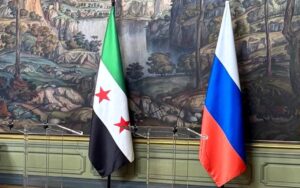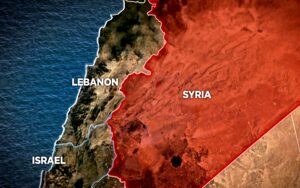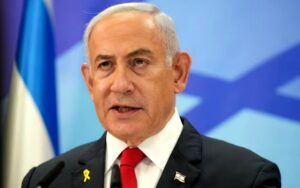The United States is considering reducing its representation in Saudi Arabia

NBC News reported, “The US administration of President Joe Biden is considering urging US companies not to expand their trade relations with Saudi Arabia, in response to Riyadh’s leadership of the OPEC+ decision to reduce oil production”.
NBC News revealed, on its website, that “the Biden administration won’t send any official to the “Davos in the Desert” investment conference in Saudi Arabia next week,” stressing that “the step of withdrawing American commercial investment from Saudi Arabia could affect the Kingdom of Saudi Arabia without affecting the states”.
The United States, which in turn seeks to achieve goals, including uniting the Arabs and Israel against Iran,” according to officials.
Washington is considering reducing its diplomatic and military relations with Saudi Arabia until the date of the next OPEC meeting on December 4, noting that a US official said that the next OPEC+ meeting will be pivotal in determining the fate of US-Saudi relations, and it will be held a few days ago from the entry into force of the decision to impose a higher price limit for Russian oil.
NBC News pointed out that “the calming of relations is likely to continue until another country takes over the leadership of OPEC+ on December 4, the 34th ministerial meeting of OPEC and independent producers.
NBC News stated that Saudi officials had told their US counterparts that they were ready to keep production without a reduction until the end of the year, in the consultations that took place before the OPEC+ decision, before they returned and changed their decision.
Washington’s talk about thinking about new ways to use American companies as leverage against Saudi Arabia comes at a time when President Joe Biden said that he “re-evaluates his administration’s relationship with the Kingdom and is thinking about how to respond to Riyadh over the oil production decision,” while a senior US official said that “Biden’s administration It plans to immediately withdraw diplomatic and military relations with Riyadh”.
US officials said, “This is just one of the options under consideration… while Biden is studying how to balance the response while not undermining some of the basic American goals in the Middle East, such as uniting Israel and Arab states against Iran”.
A senior official in the US administration said that the decision not to participate in the Saudi investment conference was taken even before the announcement of the OPEC+ alliance on October 5, and explained that the US administration wasn’t able to set work dates to send an official.
The Biden administration had already reduced the United States’ participation in the conference, from the level of participation of the Trump administration, which sent the Secretary of the Treasury to the conference, while the Biden administration last year sent the Deputy Secretary of Commerce, Don Graves, and the Commerce Department confirmed that he “won’t attend this year”.
While NBC reported that officials confessed that it was too late to influence the turnout of American business executives to the conference this year.
The next OPEC meeting will be held on the day before the entry into force of the European Union sanctions package against Russia, which will include a partial ban on Russian oil and a ban on the import of Russian crude oil from the sea, and the European Union will restrict countries from reselling Russian crude oil and petroleum products to other countries.
A senior official in the US administration said, according to NBC: “This will be a major test… the OPEC meeting… the sanctions will enter into force, and a million barrels of Russian oil will disappear from the market… Will OPEC+ do nothing after that?”
NBC confirmed that recently, the Saudis presented the United States with an analysis that the price of oil is likely to fall… They said they needed to cut production to avoid a price gap, US officials said, while they didn’t the US agreed and provided a reading that prices are likely to remain stable for another 30 days, and that production cuts may wait until the next OPEC meeting, but they said the Saudis did not change their analyzes and charts, arguing that a price crash was imminent.
John Kirby, the strategic communications coordinator for the National Security Council at the White House, told CNN on Tuesday that “the United States needs to reassess its relationship with the kingdom, including arms sales,” and added: “I think the president has been very clear about That this relationship must continue to be reassessed, that we need to be prepared to reconsider, and certainly in light of the OPEC decision, I think this is the time”.
On October 5, the OPEC+ group decided to reduce oil production by an average of two million barrels per day, despite Washington’s warnings that any production cut by the organization was “rejected and it may even be considered a hostile act” towards it.
The United States immediately criticized the decision and considered it short-sighted and disappointing, while the White House announced that the decision shows the bias of the OPEC+ alliance to Russia, considering that the organization’s decision rises to the level of moral and military support for the Russian military operation in Ukraine.
For his part, US Secretary of State, Antony Blinken, revealed that his country will review the repercussions of the OPEC+ decision to reduce oil production on Washington and Riyadh’s relations.
He said that “the United States is studying a number of retaliatory measures, including against Saudi Arabia, after the OPEC+ decision to reduce oil production”.
The US State Department also indicated that relations with Saudi Arabia, especially security, are important to the security of the region as well as to US national security.
US State Department Deputy Spokesman Vidant Patel said, “With regard to our relationship with Saudi Arabia, there are still common interests, and a large part of that is security issues, which is important for global stability, and there are about 70,000 Americans residing in the Kingdom”.
We respect their safety as well as the national security of the United States in the region, and we will ensure that the steps we take don’t infringe on those interests”.
On the other hand, the Saudi Foreign Ministry announced that the Kingdom “doesn’t accept any kind of dictation and rejects any actions aimed at modifying the goals it seeks, in order to protect the global economy,” stressing its rejection of “statements that the OPEC+ decision was based on political motives against the United States,” according to the Saudi Foreign Ministry statement.








